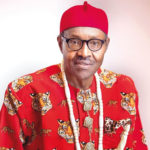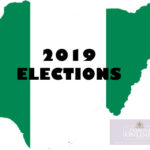THE news broke on 19th December, 2018 that about $1.68 billion had been drawn down from the Excess Crude Account (ECA) in the last one month, leaving a balance of $631 million as at the date of the report. Barely three weeks before then, the Minister of Finance, Zainab Ahmed, disclosed at the end of the Federation Accounts Allocation Committee (FAAC) meeting in Kaduna on November 25, 2018, that the balance in the account stood at about $2.319 billion. The Excess Crude Account (ECA) is a special account established to warehouse excess revenues from the prevailing crude oil price at the international market. Income generated above the approved crude oil benchmark price in the annual budget is saved in the account. At the end of the FAAC meeting for December in Abuja on Wednesday, Permanent Secretary, Federal Ministry of Finance, Mahmoud Isah-Dutse, said the money was withdrawn to settle the last tranche of the Paris Club loan refund to states.
The Paris Club became popular in Nigeria in 2005 when the ‘club’ adjudged the Federal Government’s economic reforms as far-reaching and focused that it cancelled 60 per cent of the country’s $30bn debt. Between 1995 and 2002, before the debt was written off, the Federal Government had an agreement with state governments to deduct certain amounts from their federal allocation to service the debts. Following a final agreement with the club in October 2005, some states that have been over charged in the debt servicing arrangement applied for a refund. In December 2016, the Federal Government eventually agreed to refund the states but in three tranches. The handling of the ECA has continued to receive criticism from various angles. The final tranche was vigorously criticised by the Peoples Democratic Party (PDP). In a statement released to newsmen by the National Publicity Secretary, Kola Ologbondiyan, the party accused President Buhari of “superintending over the surreptitious withdrawals from the ECA without recourse to the statutory appropriation of the National Assembly, because funds are being frittered from the account to private purses of the cabal at his Presidency and corrupt All Progressives Congress (APC) leaders.”
The Permanent Secretary, Ministry of Finance, Mahmoud Dutse and the Accountant-General of the Federation, Alhaji Ahmed Idris, however noted that due process was followed and the necessary approvals were obtained. This piece has not set out to take sides with any political party or motive but to objectively assess why it is very important for Nigeria to adopt a savings culture and sustainable development strategies. First, with the discovery of oil in 1956 at Oloibiri, Niger Delta, Nigeria, being a diversified economy before then, quickly turned into a monoculture economy based on oil, leading to a significant neglect of investment in other parts of the economy (particularly the agriculture and manufacturing sectors) manifesting in classic signs of the Dutch Disease. Oil thereby became the primary source of revenue for the Nigerian government averaging more than 75 percent of government revenue on an annual basis.
It is clear that the country’s oil reserves are depleting. This national asset belongs not just to the current generation but also to the future ones. The rapidly changing dynamics and volatility of the global oil market thereby underscored the need for building material fiscal savings. Hence, the wisdom behind the establishment of the Excess Crude Account (ECA) in 2004 to serve as buffer to sustain present and future developmental strides in Nigeria. At times of crisis like when the price of oil nosedive, savings like those in the Excess Crude Account could be used as a fiscal buffer to mitigate loss in income from either low price of oil or low oil production output. During the global financial and economic crisis of 2008 to 2009, some of the savings were used to administer a fiscal stimulus (equivalent to about 4.5 percent of 2009 GDP) to the Nigerian economy thus giving it a boost and warding off a recession. The creation of the ECA has however continued to receive challenges from various fora leading up to matters in the courtrooms.
In her book, Fighting Corruption is Dangerous – The Story Behind the Headlines”, Ngozi Okonjo Iweala , former Minister of Finance, gives a glance on the creation of the ECA and the many criticisms and events that followed. She writes; “Despite the success of the oil-price based fiscal rule and the Excess Crude Account, governors opposed these mechanisms and effectively sabotaged their inclusion in a Fiscal Responsibility Bill that would have enacted them into law. They were adamant that the Excess Crude Account was unconstitutional and that all monies therein should be shared with federating units (the states and local government) and not saved.” She continued, stating that the Governors often quoted section 162 (1) and (3) of the 1999 Constitution which stipulates in part the creation of the The Federation Account and the sharing of any amount standing to the credit of the account. She noted that the counter argument from the Finance Ministry and the Economic Management Team sprung from Section 16 (1) (a)(b)(c) of the Constitution which enjoins the State to amongst others (a) harness the resources of the nation and promote national prosperity and an efficient, a dynamic and self-reliant economy.
This and other challenges led to the creation of the Sovereign Wealth Fund (SWF) and the enactment into law of the Nigeria Sovereign Investment Authority act of 2011. The Sovereign wealth fund (SWF) is a state owned pool of money that is invested in various financial assets, the money typically comes from a nation’s budgetary surplus. When a nation has excess money, it uses a sovereign wealth fund as a way to funnel it into investments rather than simply keeping it in the central bank or channeling it back into the economy. The SWF underpinned by law was intended to replace the ECA as a mechanism to better mange savings generated by the application of the oil-price based fiscal rule. The sum of $1bn out of the ECA was used as seed fund to kick start our Sovereign Wealth Fund. As at 30th May 2018, Nigeria’s Sovereign Wealth Fund Savings stood at $2.15 billion.
The Nigerian sovereign wealth fund is the third largest in sub-Saharan Africa, after the $6.9bn Botswana and $5bn Angola funds. However, the Nigeria SWF is comparably tiny being the eighth-largest exporter of oil in the world as opposed to the funds set aside in Saudi Arabia, Norway and Abu Dhabi, which have more than $600bn in assets as part of their funds.
Sadly, it can be said that Nigeria has frittered its oil revenues with large infrastructure deficit, white elephants projects and has also not saved enough for the future generations. The importance of savings cannot be over emphasized especially when optimally invested. This is seen from religious history. Reference can be made to the Holy Qur’an and the Bible. During the time of Yusuf/Joseph, Egyptians’ savings were set aside during the years of plenty before sharing and selling the rest of the harvest to the people. This was the wisdom that saved the land of Egypt during the seven years of famine. (Genesis 47:13-27, Genesis 41:53-57) (Holy Qur’an Surah Yusuf : 43-49).
The withdrawal from the excess crude account to make payment for the tranche calls for some questions;
- Was the money collected from States originally deposited into the Excess Crude Account?
2.Why can’t a special account be created in the Central Bank of Nigeria for such deposit to service debts?
Continuously dipping hands into savings before the forming of rainy clouds is likely to cause complications for the future generations.
While the debate on the constitutionality of the ECA rages on, more focus should be placed on improving the SWF. An important characteristic of the SWF that differentiate it from the ECA is that it is intended to function independently of political pressures for withdrawals and transparency regarding the use of fund.
The savings in the SWF should be maintained or rather spent on creating a springboard for stable long run growth that will benefit future generations. This means spending the money wisely on long term investments. Today’s satisfaction should not be at the expense of the future.
- Toheeb, a lawyer, lives in Lagos State.






